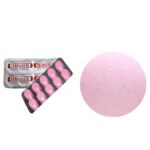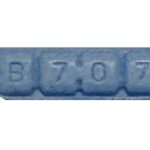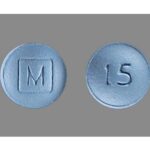What Does The Blue Oval Pill With No Imprint Contain?

According to drug bank, there are 14,528 drugs in circulation. This consists of 11886 small molecule drugs, 6654 experimental drugs, 205 Illicit Drugs and 265 withdrawn drugs. The danger here is that any of these pills or medications could be the blue oval pill with no imprint. This explains why all prescription and over-the-counter (OTC) drugs in the U.S. are required by the FDA to have an imprint code.
If your pill has no imprint it could be a vitamin, diet, herbal, or energy pill, or an illicit or foreign drug; these pills are not included in our pill identifier. Approved prescription and over-the-counter solid, oral dosage form medications in the U.S. are required by the Food and Drug Administration (FDA) to have an imprint. This also applies to biological drug products and homeopathic drug products, unless otherwise exempted in the FDA Code of Federal Regulations 206.7. Solid oral dosage forms are defined as capsules, tablets, or similar drug products intended for oral use.
You may need to identify a drug if:
- you have dropped it or mixed it up in a pill box or case
- found it in your home or elsewhere
- you need to double check a medication from the pharmacy that looks different and may be a generic substitution.
Why Do Drugs Have Imprint Codes?
The imprint code, when used in conjunction with the product’s size, shape, and color, permits the identification of the drug product, the active ingredient(s), strength, and the manufacturer or distributor of the product.
The purpose of regulating imprinting is to enable identification of the pill ingredients and drug manufacturer by law enforcement officials, health care providers and the patient or caregiver.
- An imprint is defined as any single letter, number, or combination of letters and numbers, including words, company names, National Drug Code, or a mark, symbol, logo or monogram. The drug manufacturer determines the imprint for specific drug products.
- Identification of the drug product requires verification of its active ingredients and its dosage strength. Inclusion of a letter or number in the imprint, while not required, is encouraged as a more effective means of identification than a manufacturer’s symbol or logo by itself.
- Homeopathic drug products are required only to bear an imprint that identifies the manufacturer and their homeopathic nature. There are no FDA-approved homeopathic products. Any product being sold in the U.S. that is marked as homeopathic is being marketed without FDA evaluation for safety or effectiveness.
There may be circumstances where two products have the same imprint code. For example, an imprint code might be reused after a drug product has been discontinued. Foreign products may also have the same code as an FDA approved imprint.
Why you can’t identify a pill?
There are a few reasons why the pill identifier may not be able to recognize the pill you have. Most likely, it may not be an FDA-approved drug. This means that you may be looking at an illegal drug, a counterfeit, or even an alternative remedy.
You may want to take it to your pharmacist to ask for help. If you don’t want to do that, then throw it away. However, it’s important that you properly dispose drugs.
Do not just toss it in the trash because another person or an animal may find it and ingest it, causing potentially serious problems.
As tempting as it may be, do not flush pills down the toilet, either. Flushing medications can pollute nearby waterways, which you use every day for drinking and bathing. Water treatment systems cannot remove every chemical in the water. It also has a significant impact on the environment, including fish and wildlife.
A better option is to take the pill (and any unused medications you no longer need) to an authorized U.S. Drug Enforcement Administration (DEA) collection site. These DEA collection sites are located all over the United States; you can use their online search utility to help you find a nearby public disposal.
Can I use an Unknown Drug?
It’s never a good idea to take any pill that you’re not prescribed or that you don’t buy directly over-the-counter (OTC). It is even less advisable to take a drug when you don’t know what it is. It’s always best to talk to your doctor or pharmacist before taking any medication.
Various medications, dietary supplements, and alternative remedies can cause serious health problems, even if they’re approved for use or OTC. By taking an unknown pill, you are running the risk of drug interactions, complications of medical conditions you have, and counterfeit drugs that are not regulated. The FDA is a great resource for advice about safely taking medications. Just remember: if you don’t know it, don’t swallow it.





